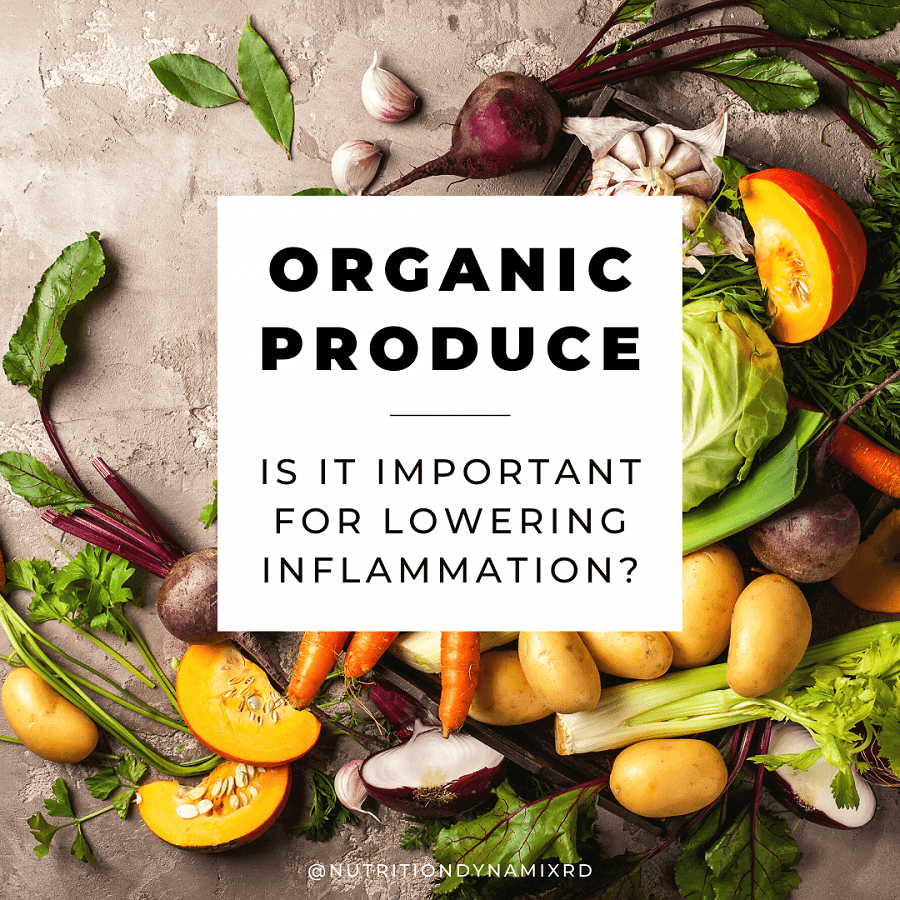Food advertising can be SO confusing. "Organic ingredients", "All natural".... When you're trying to eat healthy, how important is eating organic food? If you're on a limited grocery budget, what should you spend our money on? In today's post, I'll discuss what to consider when buying organic produce. How important is organic produce for lowering inflammation levels in your body?
I was recently shopping at my local grocery store and I was overwhelmed by just how many selections of milk there are to choose from! I wondered about the fact that if I am overwhelmed as a nutrition professional, how must my patients feel? This is true of not just milk, but EVERY product you see on the shelf! Do you choose the one that is least expensive? Do you examine each ingredient label before making a decision? How important is it to buy organic?
The root cause of most chronic health conditions is inflammation. I talk about this often in my nutrition practice. The first step that I encourage my patients to make to improve their health and reduce inflammation is eating REAL food with REAL ingredients. Ingredients that they can pronounce.
The most basic way to accomplish this is to choose food in it's whole and natural form. This food is usually found in the perimeter or outer sides of your grocery store. This refers to fruits and vegetables, meat and fish, and the refrigerated case with dairy and dairy alternatives. With the exception of the dried grains, beans and legumes, the inner aisles can be a jungle of confusion (and preservatives)!
Look for short ingredient lists:
The reason you see long lists of ingredients that include preservatives and thickeners is so that the product can stay on the shelf longer. Manufacturers want their products to be sold before they spoil. This will make them the most money possible without waste. In recent years, there has been a higher demand for natural products. Food companies have slowly been limiting the number of preservatives because consumers are demanding it. This means a trend of less High Fructose Corn Syrup (HFCS), artificial colors, and preservatives such as Sodium Benzoate, Nitrite, Sulfite, and MSG. These are all possible inflammatory triggers. It also means more organic ingredients. A product may not be labeled as Organic, but reading the ingredient label may show multiple organic ingredients. I really like this trend!Buy Organic Produce that Matters the Most:
If I had an unlimited budget, I would buy all of my produce organic. Unfortunately, that isn't the case so I make sure to buy organic produce when it matters most. Those products that tested highest in pesticide residues are the most important. This helps reduce my exposure.
The Environmental Working Group publishes a list of the "Dirty Dozen" and "Clean 15" each year. It analyzes the most popular fruits and vegetables. It is based on over 40,000 samples tested by the U.S. Department of Agriculture and the Food and Drug Administration. It can change from year to year. I use this as a guide for shopping. I try to buy those items listed on the Dirty Dozen in the organic aisle or at the farmer's market from suppliers who may not necessarily be organic certified, but don't use pesticides or sewage sludge as fertilizer. When using non-organic produce, I suggest peeling the skin whenever possible.
If you are eating or drinking a concentrated product, it should be organic. If you are juicing, you are probably juicing large portions of fresh fruits or vegetables. You may use a protein powder in your smoothie each morning. These can be healthy habits, but when you are concentrating the healthy vitamins, minerals, or protein, you are ALSO concentrating the pesticides! Choose organic.
I recommend that you wash all produce before eating. There are many brands of produce washes and sprays on your grocery store shelves, but I'm sharing my Easy Homemade Produce Wash for an inexpensive option.
There are some studies showing that antioxidant levels of organic produce are considerably higher than those conventionally grown crops. University of California Davis Agricultural Sustainability Institute has been studying this topic for years. For example, one study showed that organically grown berries and corn contained nearly 60% more polyphenols, a natural antioxidant, than those conventionally grown.
Why would there be a difference in the nutrition between organic and conventional produce?
Government agencies in the United States stand behind their claim that organic foods are not nutritionally superior to those that use pesticides. They don't want to risk the fear which may lead to limited intake of produce. However, scientists theorize that when plants aren't coated in chemicals to help prevent insects, they develop stronger natural compounds (antioxidants) to help protect themselves. This is similar to the way humans build antibodies when exposed to bacterial "bugs". I look forward to continued research in this area to continue the movement towards less pesticide use. In the meantime, I stand by my recommendation of buying organic produce whenever possible.


